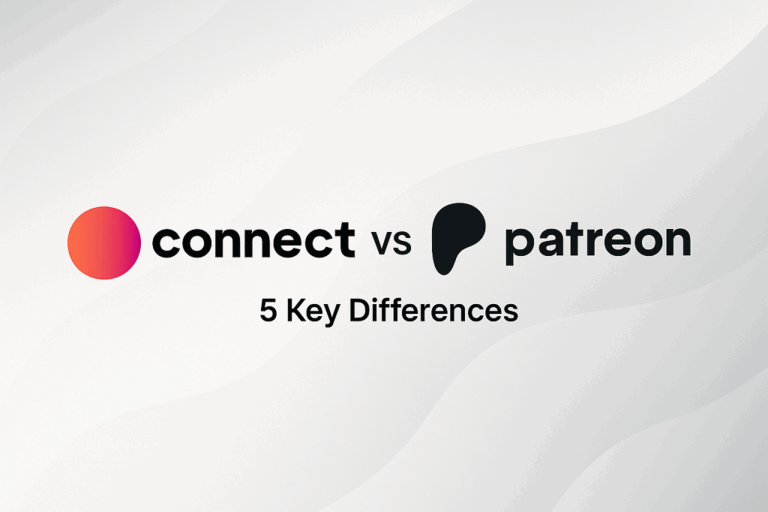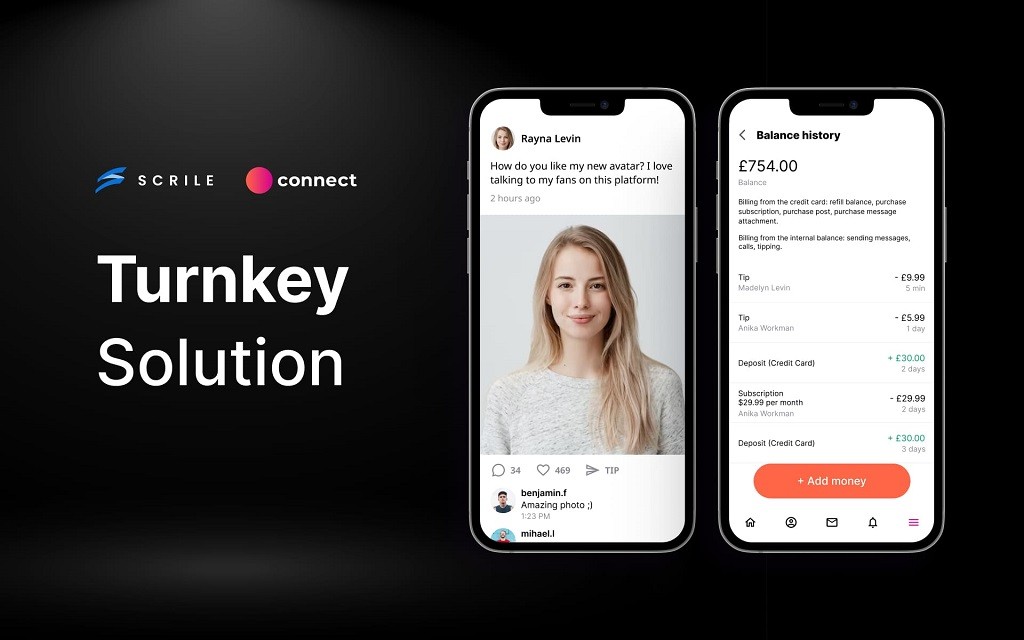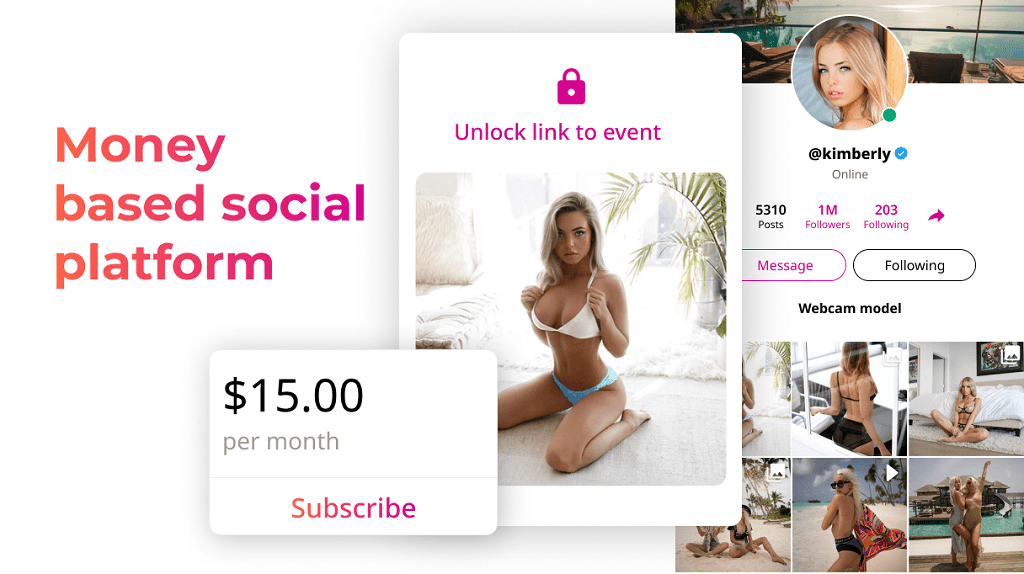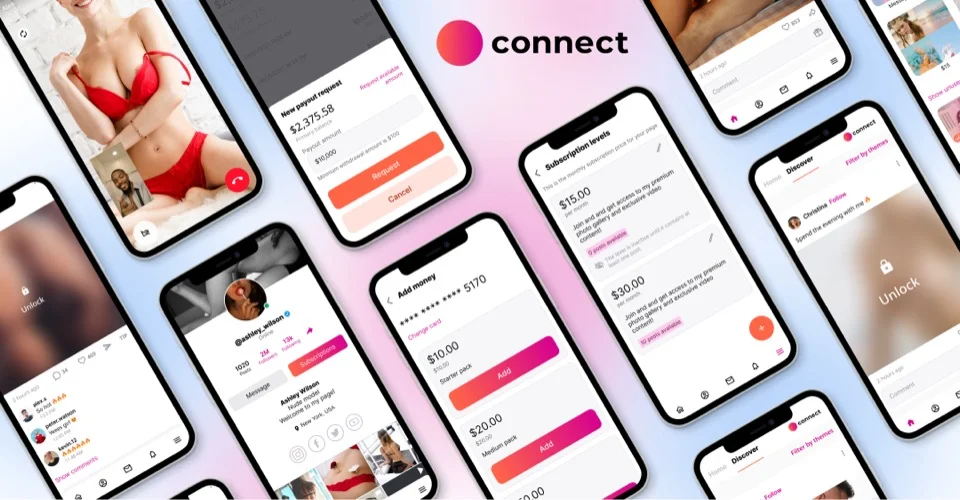Scrile Connect vs Patreon: 5 Key Differences
Curious about the real difference between Patreon and Scrile Connect? This article breaks down five key areas — pricing, customization, monetization tools, user experience, and growth potential — to help creators decide which model works best. Learn why Scrile Connect’s white-label service gives you ownership, branding, and zero commission fees.

scrile connect vs patreon
Creators today face a simple but urgent question: how do you actually turn your audience into steady income? That’s where the debate around Scrile Connect vs Patreon starts to matter. On one side, Patreon has built a name as a subscription-based platform with clear rules, but also rigid fees and limitations. On the other, Scrile Connect offers something entirely different — a development service where you own the brand, shape the experience, and decide how your business runs.
Instead of plugging into someone else’s ecosystem, Scrile Connect lets you launch a white-label solution that looks and feels like your own platform. No revenue cuts, no dependency on third-party decisions, and no blending in with thousands of creators on the same site.
In this article, we’ll walk through five major differences between Patreon and Scrile Connect to see which path really makes sense for long-term growth.
Pricing Models: Subscription Fees vs. Zero Commission

Money is usually the first dealbreaker when comparing Scrile Connect vs Patreon. Patreon is free to join, but the real cost appears once you start earning. The platform charges between 5% and 12% of your revenue, plus payment processing fees. For a creator pulling in $5,000 a month, those “small” percentages quickly eat away at hundreds of dollars — often $350–$500 gone before you even see your payout.
Scrile Connect flips that model on its head. Instead of taking a slice of everything you make, it runs on a flat monthly plan with 0% revenue commission. That means the money you earn stays yours, whether you’re a solo creator just starting or a business scaling into five-figure months.
Here’s how Scrile Connect’s pricing works:
- Solo – $59/month annually ($79 if paid monthly), 200 GB storage, one creator page.
- Pro – $425/month annually ($500 if paid monthly), 500 GB storage, unlimited creator pages, 14-day free trial.
- Enterprise – custom pricing, 1,000 GB storage, advanced development, dedicated manager.
Now put that against Patreon’s percentage model, and the difference is obvious:
| Platform | Pricing | What you keep on $5,000/month |
| Patreon | 5–12% + processing fees | ~$4,500–$4,650 |
| Scrile Connect | $59–$425 flat | $5,000 |
This is the foundation: Scrile Connect guarantees predictable costs and full ownership of your earnings.
Customization & Branding: White-Label vs Shared Platform

When comparing Scrile Connect vs Patreon, one of the biggest gaps shows up in how creators can present themselves. Patreon offers a familiar setup, but everything is tied to its brand. Your page sits under Patreon.com, the layout is predefined, and customization is limited to small tweaks. It works, but it means your community always sees the Patreon logo before they see yours.
Scrile Connect works the other way around. Because it’s a white-label service, it lets you build a space that looks and feels entirely your own. You control:
- Domain – yourname.com instead of Patreon.com/yourname
- Design & layout – choose colors, structure, and navigation
- Brand elements – logos, visuals, and UX tailored to your niche
Think of a fitness coach who wants clients to sign up for training programs. On Patreon, their page is just one among thousands, all shaped by the same design rules. With Scrile Connect, the same coach can launch a platform under their own brand, where every detail reflects their business identity.
This isn’t about decoration — it’s about trust. When users feel they’re entering a creator’s dedicated space, they see a business that’s serious, independent, and built for long-term relationships.
Monetization Tools: Beyond Subscriptions

Looking at Scrile Connect vs Patreon comparison from a monetization angle, the contrast is clear. Patreon built its model around subscription tiers — supporters pay monthly and get perks like early access or bonus content. It’s straightforward, but the structure doesn’t go far beyond that. If you want to experiment with different income models, your options on Patreon stay fairly limited.
Scrile Connect takes a wider view. Instead of locking creators into one system, it provides multiple ways to earn. Subscriptions are there if you need them, but they’re only the starting point. Creators can add:
- Pay-per-view content for exclusive videos or posts
- Livestreams with ticketed entry
- Tipping features that reward spontaneous engagement
- One-to-one video calls for coaching, consulting, or fan chats
- Bundles and digital products to sell directly
- Add-ons like scheduling tools and notifications to improve engagement
The practical impact is huge. A musician can sell tickets to a live-streamed concert. A consultant can host private paid video calls with clients. A content creator can package old material into bundles while still earning from tips and subscriptions.
By spreading income across several channels, creators reduce their dependence on any single revenue stream. That flexibility is what turns a side hustle into a sustainable business.
User & Admin Experience: Platform UX vs Tailored Control

Patreon has a clean and familiar interface, which is part of its appeal. Creators can launch pages quickly, upload posts, and manage subscribers without a steep learning curve. The trade-off is that everyone gets the same look and feel. Layouts are fixed, navigation is predictable, and there’s little room to change how the community interacts.
Scrile Connect adds another layer by giving full control over the back end as well as the user side. Creators and businesses can work with:
- An admin dashboard for managing content and users
- Customizable creator roles to handle multi-creator setups
- Analytics that go beyond basic stats
- Payout management across different gateways
- Built-in moderation tools for safe spaces
This flexibility means you’re not just filling out fields on a template — you’re shaping the entire experience. You can decide what kind of community you want to build, how content is accessed, and how members interact with each other.
A good example is a startup setting up a marketplace with several creators under one brand. On Patreon, they’d be forced to split across separate pages. With Scrile Connect, everything runs in one place, unified under their own identity. That’s where the Scrile Connect vs Patreon comparison becomes less about small features and more about who’s in charge of the bigger picture.
Growth Potential: Scaling on Your Own Terms

Growth is where many creators hit a wall with Patreon. The platform sets the rules, and you have to follow them. Algorithm changes can affect visibility, forced updates roll out whether you want them or not, and there’s no real way to expand beyond the boundaries Patreon defines. For small projects that might be fine, but once revenue and audience start climbing, those limits feel tight.
Scrile Connect is built with scaling in mind. You can begin small with the Solo plan, launch a minimum viable product, and test your idea. When things pick up, moving to Pro unlocks unlimited creator pages and more storage. For businesses with big ambitions, Enterprise allows tailored development, dedicated support, and full technical freedom.
That flexibility extends to the roadmap. Need crypto payments? Add them. Want a new moderation layer or a custom gateway for your region? It’s possible. This ability to adapt and expand makes Scrile Connect vs Patreon a decisive comparison. Patreon gives a fixed ceiling; Scrile Connect gives you a ladder with no end.
Conclusion
At the end of the day, Scrile Connect vs Patreon comparison comes down to a simple choice: do you want to build inside someone else’s system, or do you want full control over your own? Patreon has its place. For beginners testing the waters, it offers a low barrier to entry and a ready-made audience platform. But those advantages fade as soon as growth kicks in. Fees stack up, branding gets lost behind the Patreon name, and expansion is limited to what the platform allows.
Scrile Connect takes the opposite approach. It hands ownership back to the creator. You choose the design, you keep every dollar you earn, and you set the roadmap for your business. From a solo project to a multi-creator marketplace, the service scales with you instead of boxing you in.
If you’re serious about turning your audience into a long-term business, it’s worth exploring Scrile Connect’s pricing plans and seeing how the service fits your vision. Better yet, reach out directly — contact the Scrile Connect team and start shaping a platform that truly belongs to you.
Read also
| Article | Why it’s worth reading |
|---|---|
| Scrile Connect vs Bitrix24: 5 Key Differences | If you’re coming from a “general purpose” tool like Bitrix24, this comparison shows where an all-in-one corporate suite stops being enough and a creator-focused platform takes over. |
| Scrile Connect vs. Fanfix: 5 Key Differences | If your audience is younger or more short-form-oriented, this guide compares Fanfix with running your own platform so you can decide whether to stay on hype apps or build long-term assets. |
| Scrile Connect vs. Gumroad: 5 Key Differences | For creators selling digital products, this piece explains when simple “file + checkout” is enough and when it’s worth upgrading to a full membership and community experience. |
| Scrile Connect vs. WordPress: 5 Key Differences | If you’re debating between plugins on top of WordPress and an out-of-the-box creator platform, this comparison walks through speed, maintenance, security, and monetization trade-offs. |
